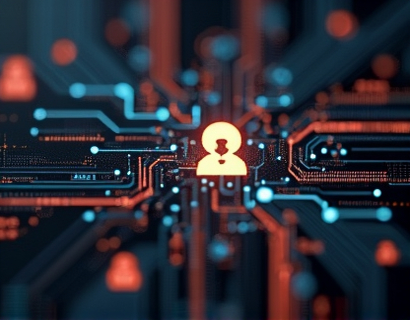AI-Driven Online Safety: Expert Strategies for Tech-Savvy Users to Secure Their Digital Life
In the digital age, online safety has become a paramount concern for tech-savvy individuals who navigate the internet daily. With the increasing sophistication of cyber threats, relying on traditional security measures is no longer sufficient. This article delves into the realm of AI-driven online safety, offering expert strategies and insights to help tech-savvy users secure their digital lives. By leveraging cutting-edge AI technologies, users can enhance their online security and enjoy a more confident and safe digital experience.
Understanding AI in Online Safety
Artificial Intelligence (AI) has revolutionized various sectors, and online safety is no exception. AI-driven solutions utilize machine learning algorithms, natural language processing, and predictive analytics to identify and mitigate potential threats. These technologies can detect anomalies, recognize patterns, and adapt to new threats in real-time, providing a dynamic and proactive approach to online security.
One of the key advantages of AI in online safety is its ability to analyze vast amounts of data quickly and accurately. Traditional security systems often rely on predefined rules and signatures, which can be easily bypassed by sophisticated attackers. AI, on the other hand, can learn from new data and adapt to emerging threats, making it a powerful tool in the fight against cybercrime.
AI-Powered Threat Detection
AI-driven threat detection systems can identify potential security breaches before they cause significant damage. These systems continuously monitor network traffic, user behavior, and system logs to detect unusual activities that may indicate a cyber attack. By analyzing patterns and anomalies, AI can flag suspicious behavior and alert users or administrators to take action.
For instance, AI can detect phishing attempts by analyzing the content and structure of emails, identifying signs of deception such as suspicious links or urgent calls to action. It can also recognize malware by examining file characteristics and behavior, even if the malware is new and hasn't been seen before. This proactive approach significantly reduces the risk of successful attacks.
Enhancing Password Security with AI
Passwords remain a critical component of online security, but traditional password management methods are often inadequate. AI can enhance password security by generating strong, unique passwords for each online account and storing them securely. AI-driven password managers can also monitor for password leaks and suggest changes if a password has been compromised.
Moreover, AI can help users avoid common password pitfalls, such as using easily guessable information or repeating passwords across multiple sites. By analyzing user behavior and preferences, AI can recommend best practices for password creation and management, ensuring that users maintain a high level of security without the hassle of remembering complex passwords.
AI-Driven Identity Verification
Identity verification is another area where AI excels in enhancing online safety. Traditional methods like CAPTCHAs and two-factor authentication (2FA) are being supplemented or replaced by more advanced AI-driven solutions. Biometric authentication, for example, uses AI to analyze facial features, fingerprints, or voice patterns to verify a user's identity.
AI-powered identity verification can also detect and prevent identity theft by monitoring for unusual login activities or location changes. By continuously analyzing user behavior and device patterns, AI can identify potential security risks and alert users to take preventive measures. This not only enhances security but also improves the user experience by reducing friction in the authentication process.
AI for Social Engineering Prevention
Social engineering attacks, which exploit human psychology rather than technical vulnerabilities, remain a significant threat. AI can play a crucial role in preventing these attacks by educating users and detecting suspicious activities. AI-driven platforms can simulate phishing attempts and other social engineering tactics to train users to recognize and avoid such threats.
Additionally, AI can monitor social media and other online platforms for signs of social engineering, such as impersonation attempts or targeted scams. By analyzing patterns and identifying potential risks, AI can alert users to take precautions and protect their personal information.
AI-Enhanced Security Awareness Training
Education is a fundamental aspect of online safety, and AI can significantly enhance security awareness training for tech-savvy users. AI-driven training platforms can adapt to individual learning styles and needs, providing personalized content and exercises to improve security knowledge and skills.
These platforms can simulate real-world scenarios, allowing users to practice responding to various security threats in a safe environment. AI can also track user progress and identify areas where additional training is needed, ensuring that users stay up-to-date with the latest security best practices. This tailored approach makes security training more effective and engaging.
AI for Network Security
Network security is a critical component of overall online safety, and AI can greatly improve the security of home and business networks. AI-driven network security solutions can monitor traffic in real-time, detect anomalies, and respond to threats automatically. These systems can identify and block malicious activities, such as unauthorized access attempts or data exfiltration.
AI can also optimize network configurations to enhance security, such as setting up firewalls, configuring intrusion detection systems, and managing access controls. By continuously analyzing network traffic and user behavior, AI can adapt to changing threats and ensure that the network remains secure.
AI in Data Encryption and Privacy
Data encryption is essential for protecting sensitive information from unauthorized access. AI can enhance encryption by generating strong, unique encryption keys and managing key storage securely. AI-driven encryption solutions can also adapt to different data types and sensitivity levels, ensuring that the most appropriate encryption methods are used.
Privacy is another critical aspect of online safety, and AI can help users protect their personal data. AI-powered privacy tools can analyze data sharing practices, identify potential privacy risks, and provide recommendations to minimize exposure. These tools can also help users manage privacy settings across various platforms, ensuring that personal information is protected.
AI for Incident Response and Recovery
Despite the best preventive measures, security incidents can still occur. AI can significantly improve incident response and recovery processes by automating many tasks and providing real-time insights. AI-driven incident response systems can quickly identify and contain breaches, minimizing the impact on users and organizations.
These systems can also analyze incident data to identify the root cause and recommend steps for recovery. AI can assist in restoring systems and data, ensuring that normal operations resume as quickly and smoothly as possible. By learning from past incidents, AI can help organizations strengthen their security posture and prevent future breaches.
Building an AI-Driven Security Mindset
To fully leverage AI-driven online safety strategies, tech-savvy users must adopt an AI-driven security mindset. This involves staying informed about the latest AI technologies and security trends, being proactive in implementing AI-enhanced security measures, and continuously educating oneself on best practices.
Users should also be cautious and skeptical of new tools and services, ensuring that they come from reputable sources and align with their security needs. By combining AI-driven solutions with a strong security mindset, users can create a robust defense against cyber threats.
Conclusion
AI-driven online safety offers a comprehensive and adaptive approach to securing the digital life of tech-savvy users. By leveraging AI technologies for threat detection, password management, identity verification, social engineering prevention, security awareness training, network security, data encryption, and incident response, users can significantly enhance their online safety.
As cyber threats continue to evolve, AI will play an increasingly vital role in protecting users and their data. By embracing AI-driven strategies and maintaining a proactive security mindset, tech-savvy individuals can navigate the internet with confidence and peace of mind.










































